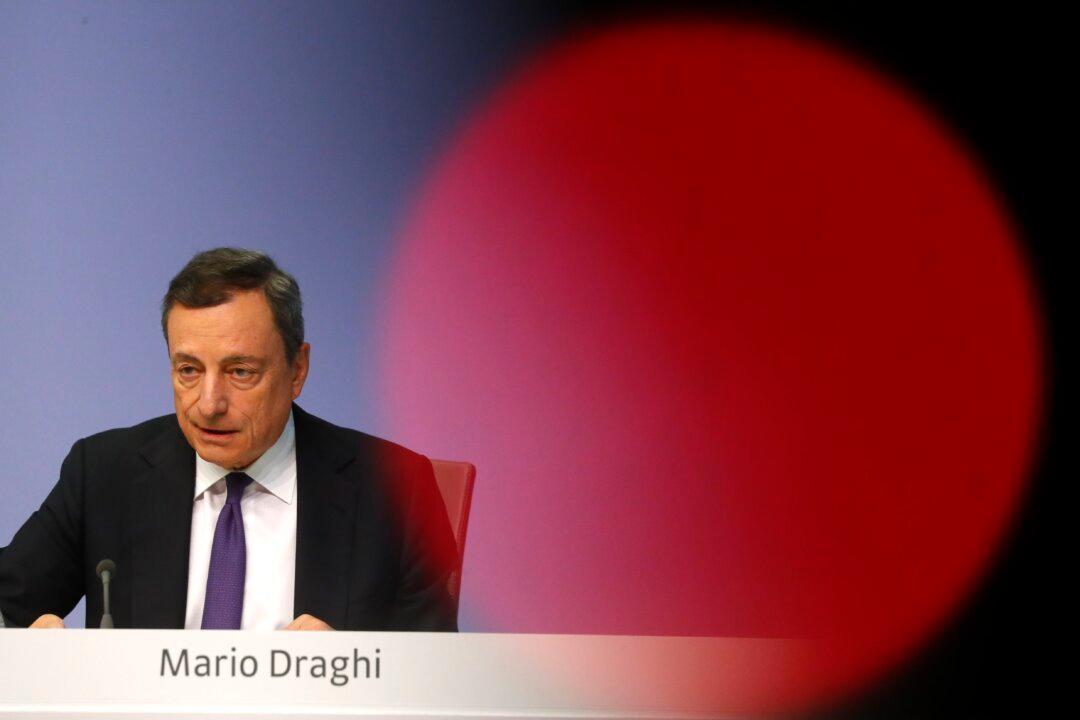WARSAW, Poland—The European Central Bank announced after Thursday’s monetary policy meeting that it would maintain its current policy course, arguing that while the risks from an amplifying global trade conflict remain “prominent,” they don’t warrant a deviation from its plan to gently abandon the aggressive stimulus of the last few years.
European Central Bank Vows to End Stimulus Despite Growth Anxiety
But ECB Stands Ready With 'All Instruments' to Ensure It Hits Inflation Target

European Central Bank (ECB) President Mario Draghi speaks during the news conference following the governing council's interest rate decision at the ECB headquarters in Frankfurt, Germany July 26, 2018. REUTERS/Kai Pfaffenbach

Tom Ozimek
Reporter
|Updated:



